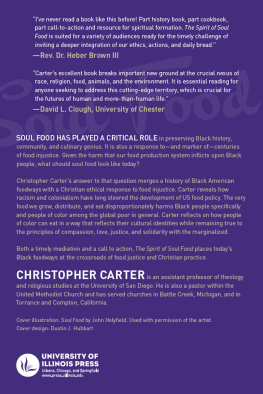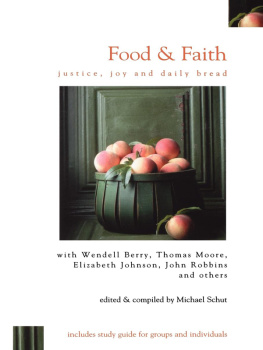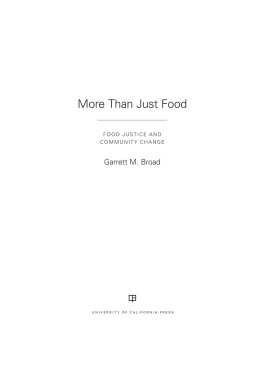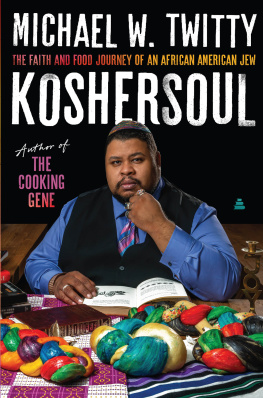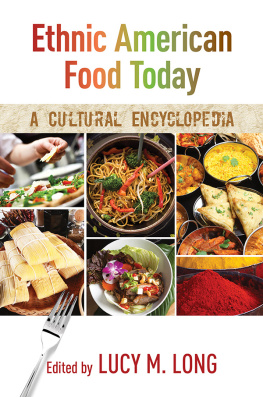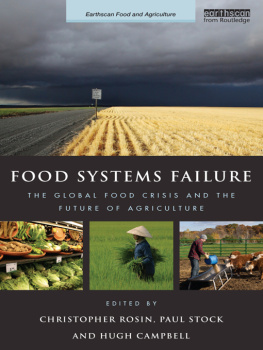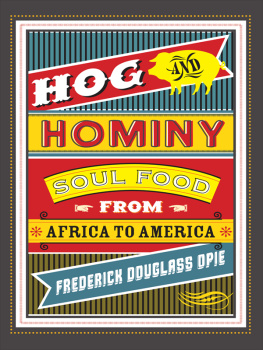Christopher Carter - The Spirit of Soul Food: Race, Faith, and Food Justice
Here you can read online Christopher Carter - The Spirit of Soul Food: Race, Faith, and Food Justice full text of the book (entire story) in english for free. Download pdf and epub, get meaning, cover and reviews about this ebook. year: 2021, publisher: University of Illinois Press, genre: Politics. Description of the work, (preface) as well as reviews are available. Best literature library LitArk.com created for fans of good reading and offers a wide selection of genres:
Romance novel
Science fiction
Adventure
Detective
Science
History
Home and family
Prose
Art
Politics
Computer
Non-fiction
Religion
Business
Children
Humor
Choose a favorite category and find really read worthwhile books. Enjoy immersion in the world of imagination, feel the emotions of the characters or learn something new for yourself, make an fascinating discovery.
- Book:The Spirit of Soul Food: Race, Faith, and Food Justice
- Author:
- Publisher:University of Illinois Press
- Genre:
- Year:2021
- Rating:3 / 5
- Favourites:Add to favourites
- Your mark:
The Spirit of Soul Food: Race, Faith, and Food Justice: summary, description and annotation
We offer to read an annotation, description, summary or preface (depends on what the author of the book "The Spirit of Soul Food: Race, Faith, and Food Justice" wrote himself). If you haven't found the necessary information about the book — write in the comments, we will try to find it.
Soul food has played a critical role in preserving Black history, community, and culinary genius. It is also a response toand marker ofcenturies of food injustice. Given the harm that our food production system inflicts upon Black people, what should soul food look like today?
Christopher Carters answer to that question merges a history of Black American foodways with a Christian ethical response to food injustice. Carter reveals how racism and colonialism have long steered the development of US food policy. The very food we grow, distribute, and eat disproportionately harms Black people specifically and people of color among the global poor in general. Carter reflects on how people of color can eat in a way that reflects their cultural identities while remaining true to the principles of compassion, love, justice, and solidarity with the marginalized.
Both a timely mediation and a call to action, The Spirit of Soul Food places todays Black foodways at the crossroads of food justice and Christian practice.
|Preface ixIntroduction: Knowing, Eating, and Believing 1
1 Transatlantic Soul 22
2 Food Pyramid Scheme 57
3 Being Human as Praxis 87
4 Tasting Freedom 122
Conclusion: Food Deserts and Desserts 157
Notes 165
Index 179
|Ive never read a book like this before! Part history book, part cookbook, part call-to-action and resource for spiritual formation. The Spirit of Soul Food is suited for a variety of audiences ready for the timely challenge of inviting a deeper integration of our ethics, actions, and daily bread.Rev. Dr. Heber Brown III, Pleasant Hope Baptist Church
Carters excellent book breaks important new ground at the crucial nexus of race, religion, food, animals, and the environment. It is essential reading for anyone seeking to address this cutting-edge territory, which is crucial for the futures of human and more-than-human life.David L. Clough, University of Chester
|Christopher Carter is an assistant professor of theology and religious studies at the University of San Diego. He is also a pastor within the United Methodist Church and has served churches in Battle Creek, Michigan, and in Torrance and Compton, California.
Christopher Carter: author's other books
Who wrote The Spirit of Soul Food: Race, Faith, and Food Justice? Find out the surname, the name of the author of the book and a list of all author's works by series.

